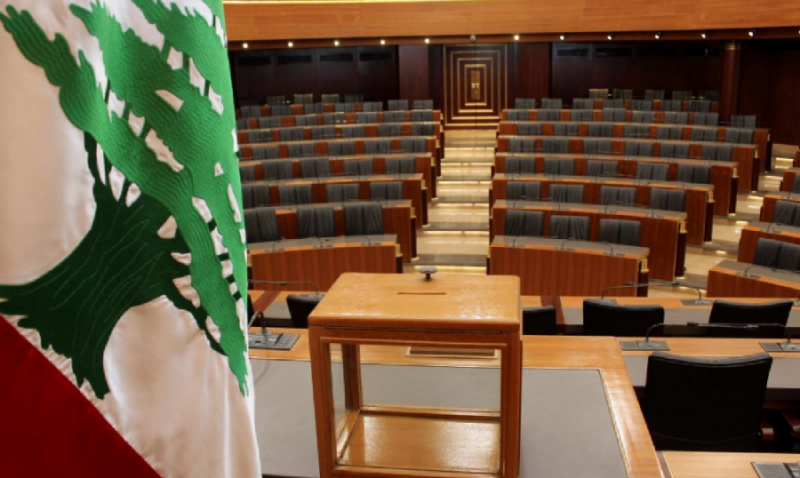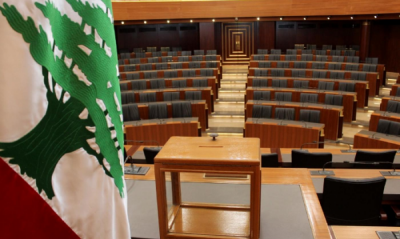The political scene remains governed by ambiguity and a lack of clarity, despite some positions that emerged in the past two days, which some have categorized as softening stances and opening the door for serious discussion. Political sources attributed the change in the stances of the Amal Movement and Hezbollah to the recent remarks by Hezbollah’s Secretary-General Hassan Nasrallah, who called for "Lebanonization" of the presidential election without waiting for external signals. Meanwhile, sources from Ain al-Tineh confirmed to Al-Anbaa electronic newspaper that the presidential election is the responsibility of local forces, which are expected to take the initiative to elect a president and form a government that works to restore and activate institutions, and to create an atmosphere for comprehensive dialogue that leads to a return of interactions among Lebanese, who have been distanced by immediate personal ambitions. They urged those rejecting dialogue to stop waiting for external influences and betting on changes in equations and power balances.
Simultaneously, criticism arose yesterday from head of the Progressive Socialist Party Walid Jumblatt for those using flimsy constitutional arguments to hinder any ministerial meeting intended to manage people's affairs, and for some challenging the budget to the extent he described as "absolute chaos." He pointed out that everyone is waiting for the external code word "that has not yet arrived."
In this context, sources close to Caretaker Prime Minister Najib Mikati revealed to Al-Anbaa that holding a Cabinet meeting is possible at any time Mikati sees the need for it. However, at this time, he is balancing matters due to the sensitivity of the phase and does not want to create a problem. His duty as caretaker Prime Minister is to manage people's affairs as it is his responsibility; there are matters that cannot be handled without a Cabinet meeting. Mikati's circles considered the ongoing debate between the Free Patriotic Movement and the Prime Minister as politically motivated without any legal or constitutional justification, stating, "The matters are clear, and instead of focusing on addressing the living, health, and economic situation, some are trying to divert attention toward a debate that serves no purpose, leading to more tension under the weight of the living and economic crisis."
Regarding the electricity issue, "these are accumulated matters that resulted in a lack of electricity, and the continuation of the country in darkness," according to those circles, questioning, "How can funding be opened without knowing where the money will go? The experiences with this team are as clear as day."
On the political stances, former MP Fadi Saad commented that the political situation remains unchanged. He told Al-Anbaa electronic newspaper that the March 8 coalition still clings to a policy of obstruction, expressing surprise at how Hezbollah speaks of "Lebanonizing" the presidential election while simultaneously asserting that its decisions, weapons, and funds come from Iran. He added, "If Hezbollah genuinely wants to Lebanonize the presidential election, why doesn’t it reveal its candidate and go to Parliament to elect him?" He indicated that the problem with Hezbollah relates to its interpretation of the Constitution as if it were a relative matter, questioning, "What prevents Parliament from convening in its electoral capacity and allowing members to remain in Parliament until a president is elected?"
Moreover, he noted that if they intend to continue using blank ballots to waste time, this is unacceptable in a collapsing country with a population suffering from hunger and poverty, and with its health, educational, economic, and social sectors facing severe difficulties. Saad emphasized that MP Michel Moawad remains the candidate of the sovereign team, pointing out that the issue of replacing him with another candidate is not on the agenda for now. However, if the forces supporting his candidacy agree on another candidate, this will only happen with his consent.
Regarding the debate over the electricity file between the Free Patriotic Movement and caretaker Prime Minister Najib Mikati, Saad observed that the problem has been the same since the two billion dollar crisis, and the country is still in darkness. He continued, "We opposed this project and suggested at that time to keep the country in darkness and start building power generation plants, but they refused. Some companies had proposed supplying Lebanon with electricity, but the Free Patriotic Movement representatives, led by Minister Cesar Abi Khalil at the time, rejected it," considering it "unnatural to spend any money on electricity that will not come."
Thus, the economic and political situations remain in a state of regression and fragmentation, with no glimmer of hope so far suggesting a path to address all these accumulations.




